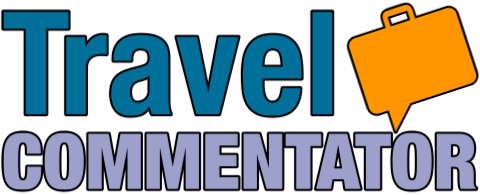Travel Money: Cash, Cards or Cheques?
The one thing you can’t do without no matter where you are, money. Or in other words the local currency. So what is the best way to go about organising foreign currency? How much should you carry and in what form: cash, credit card, debit card, travel money card or traveller’s cheques?
All have their and pros and cons. So your choice may come down to how comfortable you are carrying a lot of cash, some cash or just plastic. Personally I would have a combination of a few of these except the traveller’s cheques even though they are still accepted in some places and are a very safe way of carrying money.
Cash
Is cash still king? Yes always, and it will be accepted in 99% of places you travel to. Cash, the banknotes and coins, are the first real feel of the destination(s) you’ll be visiting, it gets the emotions going you are about to travel. This alone is why you need (some) foreign currency cash.
Is it safe to carry a lot of cash? Depends where you are and how comfortable you are carrying it and where you’ll be spending it. I would say always carry what you think you need for the day and the rest leave somewhere safe and supplement this with cards. Cash is great when you need to haggle and trying to get the best deal. Also some street merchants only want cash for their obvious reasons.
Where do you purchase foreign currency? Easy, foreign exchange bureaus and banks (which many people misguidedly think is the only place where to obtain money because they have an account there). You can also purchase foreign currency online and have it delivered to you (includes a courier fee). Do not purchase money from (shady) vendors on street corners. You won’t be sure what you are buying and at what rate, which will probably be inflated costing you a lot.
In the early days I purchased my foreign currency from two of the banks I had accounts with but then decided better go to the bureaus and take cash with me and get a much better competitive rate. Besides you can negotiate at foreign exchange bureaus whereas at the bank it is a fixed rate (most probably set in the morning).
I do have my preference here where I live and have bought at four different vendors depending on the rate and whether they had the currency available. Sometimes it happens they run out and you’ll have to wait until they can order more with the possibility the rate may have worsened by the time you are about to purchase. Sometimes it is better to order in advance. Foreign exchange is like that. The rate of exchange can be stable but also like a yo-yo. Only those that trade constantly, monitor rates and know economies and world markets will have their finger on the pulse, the rest of us will have to take a punt, unless you are willing to find the time to check rates daily or at least several times a week.
The simplest way of picking the right time to buy or sell is to check often, however if you are really keen look for favourable economic indicators, whether with your local currency or unfavourable indicators for the currency you are buying. For example, Australia is a country very dependent on the price of commodities, things like iron ore, gold, silver, precious metals, etc., for its economy. As these go up in value the currency also appreciates. Other indicators that affect rates are inflation and the central bank’s interest rates. Employment fiigures and the general health of the econmoy are others. So look out when these indicators are made public and check the exchange rates online. You can also use foreign exchange currency apps on your smartphone that will give you the mid rate (spot rate), a rate which is not commercially available but will give you a rough indication of what rates currency can be bought or sold, otherwise there are bank and money transfer apps that will give you the correct commercial rates.
Before buying foreign currency calculate a daily rate of spend. Do this by planning your travels as meticulously as possible. This will give you an approximate budget. Then any shortfall can be supplemented by cards. You can always err on the side of caution and buy a little more than you need.
Know your currencies and the denominations. Don’t get swindled. So memorise the notes and coins before going out and splashing your money and make sure you’ve got a good idea about their value and how much everyday things cost so that way you don’t pull out an unnecessary amount of bills. Just basic precautions.
Also remember how much you are allowed to export from your home country without having to declare the amount. In Australia it is $AUD10,000. Same with importing money. So calculate on the day the rate and if over just declare it. Better safe than sorry. No one wants hassles with Customs and Border Force.
You can carry a lot more with you if you have one or several debit cards to access money from your own accounts. These do not need to be declared. This is one good reason to also carry a debit card.
Credit Cards
Both credit and debit cards are great but each card has its pros and cons. The first card you think of is the credit card. Where it’s not your money you initially pay with. Great if you are using a rewards card and acquire points. Painful when it comes to paying it off, especially if you have gone over budget. The interest rates on credit cards is very high if you cannot manage the repayments. So make sure you have the funds to cover any unexpected splurge. It is easy to get carried away.
Credit cards are best used when you check-in at hotels where they’ll ask for a pre-authorisation for any incidentals that you may incur. Make sure you have plenty of credit on the card or use another credit card if you have two and use that one for other purchases and expenses. Do not use a debit card as your funds will disappear and won’t be reimbursed for weeks taking money away that you could be spending. Use the same card they took the pre-authorisation to pay the hotel bill if not already paid at time of booking or if you are paying for any incidentals, like room service, laundry, etc.
One credit card that gets a lot of praise in Australia is the 28 Degrees Global Platinum Mastercard issued by Latitude Finance. I don’t use this card so cannot give a definitive review about it. More info can be found at 28 Degrees Global Platinum Mastercard.
Debit Cards
The debit card accesses your own money. So very safe knowing you have things covered. If you use a stock-standard debit card linked to one of your bank accounts you’ll be paying your bills straight out from there. Make sure you have enough funds in your account(s) or have wages/salary deposited on a regular basis if travelling for an extended period.
The best debit cards for travel are those that allow you to have multi-currency accounts. The two I use and recommend are from Citi and HSBC: Citi Global Currency Account and HSBC Everyday Global Account. Both very similar with nine different foreign currencies that can be stored plus your local currency (in this case Australian Dollars). Citi gives slightly better exchange rates. Both have no monthly account fees or fees when purchasing currency and transacting. If you use the cards at foreign ATMs there should be no fee but you need to check with the local bank or the ATM owner to be sure.
Advice Paying With Cards
- Is it better to pay in your currency or theirs? Make sure to always pay in the local currency where you are and do not select paying in your home currency as this will incur extra costs.
- Using cards helps keep a tab on what you are spending. You’ll have your purchases and expenses itemised so you know exactly where the money has gone which is a little harder to do with cash unless you are meticulous with obtaining receipts, which are not always given.
- Rewards on credit cards? If you like earning rewards points etc., do use those cards. Usually you earn more when spending abroad. This one is a no brainer.
- Pay with plastic wherever possible and keep the cash as a backup. Also if you like to give someone a tip, cash is better, but I suppose you can do that with cards as well if that preference is available.
- Alert your bank you are travelling abroad. Any transaction that may look unauthorised may trigger your bank to block the card(s). Give them a detailed itinerary to be sure that this does not happen. Also keep your bank contact details with you for emergencies.
Travel Money Cards
These cards allow you to load several foreign currencies at fixed exchange rates. They can be purchased at banks and some foreign exchange bureaus. The card can be used to withdraw money at ATMs and have no fees when topping up or reloading which can be done by mobile app. They are an alternative to credit and debit cards but the exchange rates are not the best.
Travellers Cheques
A somewhat antiquated way of carrying foreign money. Their best attribute is they are safe and secure. If lost or stolen they can be replaced. Biggest drawback? They are not accepted everywhere, especially in far out places. The cheques are issued by American Express and can be bought through banks and some foreign exchange bureaus.
I hope I’ve given a little insight on the different ways of carrying foreign currency on your travels and how to use them.
Note: With the acquisition of Citi’s consumer banking business in Australia by National Australia Bank Limited (NAB) in June 2022, the Citi Mastercard debit card (Citi Global Currency Account) was discontinued in May 2023. There are no replacements for this type of account by NAB at this time. Good alternatives are the HSBC Everyday Global Account already mentioned and the Wise multi-currency account which has very competitive foreign exchange rates and fees.












1 Response
[…] At some stage I may do an article on credit/debits cards, the different bank accounts, travellers cheques, travel money cards and wallets and highlight their pros and cons. Here is that article: Travel Money: Cash, Cards or Cheques? […]